The Dark Side of Social Media: Understanding Its Negative Impact on Mental Health
Category: Digital Marketing
Date: April 2023
Views: 1.17K
1. Introduction
In recent years, social media has become a ubiquitous aspect of daily life for many people around the world.
While social media platforms have revolutionized the way we communicate and connect with others, they have also been linked to several negative impacts on mental health.
This article aims to explore the various ways in which social media can affect mental health, drawing on the latest research and insights from experts in the field.
From depression and anxiety to cyberbullying, addiction, and body image concerns, social media's effects on mental health are complex and multifaceted.
By examining the evidence and highlighting the most important issues, this article will help readers better understand the impact of social media on mental health and how to use these platforms in a more positive and healthy way.
By examining the impact of social media on various aspects of mental health, readers will be better equipped to navigate the complex and rapidly-evolving world of social media in a way that is healthy and sustainable for them.
2. Depression and Anxiety
Depression and anxiety are two common mental health concerns that can be impacted by social media use. Here are some ways in which social media can exacerbate these issues:
Comparison culture: Social media platforms are often filled with carefully curated images and posts that can make individuals feel inadequate or inferior. This constant exposure to others' seemingly perfect lives can contribute to feelings of depression and anxiety.
Cyberbullying: Cyberbullying on social media can lead to increased levels of depression and anxiety in victims. It can also lead to feelings of social isolation and loneliness, which can exacerbate these issues.
Sleep disorders: Social media use has been linked to sleep disorders, such as insomnia, which can contribute to depression and anxiety.
Inauthenticity: Social media can sometimes create a false sense of connection and intimacy, which can be detrimental to individuals struggling with depression and anxiety. The pressure to present a perfect image online can contribute to feelings of inauthenticity and disconnection from others.
Addiction: Social media addiction can contribute to feelings of depression and anxiety, particularly if individuals feel they are unable to control their social media use.
It's important to recognize that social media can have both positive and negative effects on mental health. While social media can connect individuals to others and provide a sense of community, it's important to be mindful of the potential negative impacts and take steps to mitigate these effects.
3. Cyberbullying
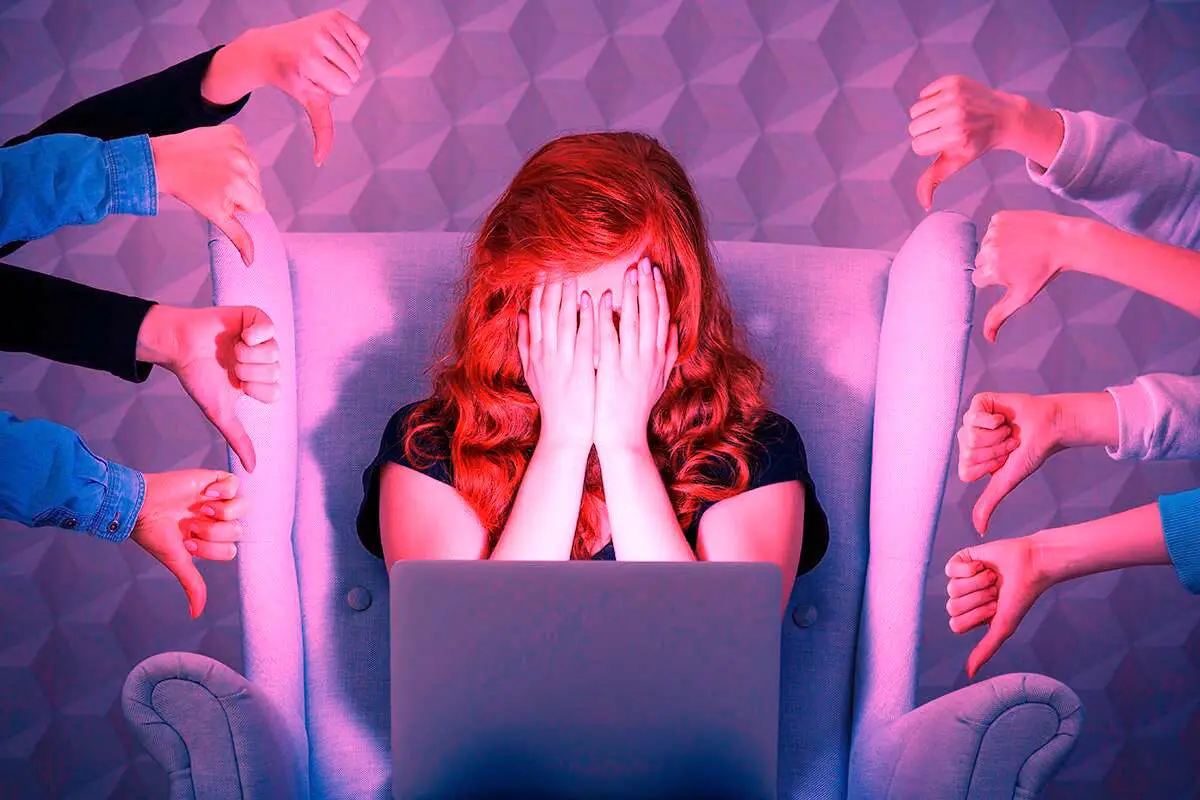
Cyberbullying is a form of online harassment that can have serious impacts on mental health. Here are some ways in which cyberbullying can affect individuals:
Depression and anxiety: Cyberbullying can lead to increased levels of depression and anxiety in victims, particularly if it's persistent or ongoing. It can also contribute to feelings of social isolation and loneliness.
Reduced self-esteem: Cyberbullying can also impact an individual's self-esteem and confidence, particularly if the bullying is related to their appearance or personal qualities.
PTSD and trauma: In some cases, cyberbullying can result in PTSD (post-traumatic stress disorder) or other forms of trauma, particularly if the bullying is severe or persistent.
Suicide ideation: Cyberbullying has been linked to increased levels of suicide ideation, particularly in young people who may be more vulnerable to these types of attacks.
It's important to take cyberbullying seriously and take steps to prevent it. This includes reporting any instances of cyberbullying to the appropriate authorities, blocking or unfollowing individuals who engage in this behavior, and seeking support from friends, family, or mental health professionals if needed. It's also important to be mindful of the language and tone used online, and to avoid engaging in behavior that could be perceived as bullying or harassment.
4. Social Isolation and Loneliness

The rise of social media platforms has revolutionized the way we connect and communicate with each other. However, research suggests that increased social media use is linked to social isolation and loneliness.
Loneliness: Social media can give the illusion of social connectedness, but in reality, it can leave individuals feeling isolated and alone. This is because social media interactions lack the warmth and depth of in-person interactions. As a result, excessive social media use can increase feelings of loneliness, especially among vulnerable populations such as older adults, those with disabilities, or people with social anxiety.
Social Isolation: Social isolation occurs when individuals lack social interaction and support from others. Social media can exacerbate this problem by reducing face-to-face interactions and physical activity. Spending excessive amounts of time on social media can lead to social withdrawal and decreased opportunities for social interaction.
Negative Impact on Mental Health: Loneliness and social isolation have been linked to a range of mental health problems, including depression, anxiety, and suicidal ideation. Research shows that the more time individuals spend on social media, the higher their risk for developing mental health issues related to social isolation and loneliness.
To combat social isolation and loneliness, it is important to encourage individuals to engage in real-life social interactions and activities. This can include joining clubs or groups, volunteering, or participating in community events. It is also important to limit social media use and to be aware of the negative impact excessive use can have on mental health.
5. Addiction and FOMO
Social media addiction is a growing concern among young people, as it can lead to negative mental health outcomes such as anxiety, depression, and reduced self-esteem. The addictive nature of social media is attributed to the constant stream of notifications, likes, and comments that trigger the reward centers in the brain, releasing dopamine and creating a cycle of seeking validation from others.
FOMO, or fear of missing out, is another factor that contributes to social media addiction. People may feel the need to constantly check their social media accounts to avoid missing out on important updates or events. However, this constant checking can lead to feelings of anxiety and stress, especially when faced with the curated and idealized versions of others' lives that are often presented on social media.
Research has shown that social media addiction and FOMO are linked to poor sleep quality, reduced attention span, and decreased productivity. It can also lead to social isolation and loneliness, as people may prioritize their online interactions over in-person relationships. Additionally, social media addiction can lead to financial problems, as people may spend excessive amounts of money on devices and data plans to stay connected.
Overall, it is important to be aware of the potential addictive nature of social media and to take steps to limit its use. This can include setting boundaries on social media usage, such as turning off notifications or designating specific times for checking social media. Seeking support from friends, family, or a mental health professional can also be helpful in managing social media addiction and the associated negative mental health outcomes.
6. Self-Esteem Issues and Body Image Concerns
Social media can have a significant impact on our self-esteem and body image. Constant exposure to carefully curated images and posts of others can lead to unrealistic expectations and comparisons. This can cause feelings of inadequacy, low self-esteem, and negative body image.
Some ways in which social media can contribute to self-esteem issues and body image concerns include:
Idealized portrayals: Social media platforms are full of images and posts that depict the ideal version of life, beauty, and success. These portrayals can make people feel inferior and unworthy.
Filters and editing: The widespread use of filters and editing tools can make people feel like they can never live up to the same level of beauty and perfection portrayed on social media.
Body shaming: Social media can also be a breeding ground for body shaming and negative comments. This can be particularly harmful to people who are already struggling with their body image.
Pressure to conform: There is often a pressure to conform to certain beauty standards and trends on social media. This can be especially challenging for people who don't fit into those standards or who feel like they need to change themselves to be accepted.
It's important to be aware of the potential impact that social media can have on our self-esteem and body image. We can mitigate some of these effects by limiting our exposure to unrealistic portrayals, unfollowing accounts that make us feel bad about ourselves, and focusing on self-love and acceptance rather than comparison to others.
7. Comparison Culture and Social Comparison
One of the biggest issues with social media is the constant pressure to compare ourselves to others. We see carefully curated images and stories of people living seemingly perfect lives, and it's easy to feel like we're not measuring up. This can lead to feelings of inadequacy, low self-esteem, and even depression.
Here are some ways that social media contributes to comparison culture and social comparison:
Highlight reels: People tend to share only the best parts of their lives on social media, creating a distorted view of reality that can make others feel like they're missing out or not living up to expectations.
Likes and followers: The emphasis on likes and followers can lead to a constant need for validation and affirmation from others, which can be damaging to self-esteem.
Filters and editing: The use of filters and editing tools can create unrealistic beauty standards and make people feel like they need to constantly improve their appearance to be accepted.
Celebrities and influencers: The rise of social media influencers and celebrity culture can make it even harder to avoid comparing ourselves to others, as we're constantly bombarded with images of the rich and famous living seemingly perfect lives.
It's important to remember that social media is not an accurate representation of reality, and that comparing ourselves to others online can be damaging to our mental health. Instead, we should focus on cultivating genuine connections and relationships in real life, and learning to appreciate ourselves for who we are.
8. Online Harassment and Cyberstalking
Social media platforms have become a breeding ground for online harassment and cyberstalking. With the ability to remain anonymous, some individuals feel emboldened to engage in harassing behavior towards others. The effects of online harassment can be severe and long-lasting, leading to emotional distress, anxiety, and even depression.
Cyberstalking is a specific form of online harassment that involves persistent and unwanted attention, often directed towards a specific person. This can include monitoring their online activity, sending threatening messages, or even making physical threats. Cyberstalking can be extremely traumatic and can lead to feelings of helplessness and fear.
It's important to note that online harassment and cyberstalking can happen to anyone, but certain groups may be more vulnerable, including women and people of color. Social media companies have a responsibility to take action against these behaviors, but more needs to be done to ensure the safety of their users.
The impact of online harassment and cyberstalking on mental health cannot be overstated. It's essential to seek support from friends, family, or mental health professionals if you or someone you know is experiencing this type of abuse. Remember to prioritize your safety and well-being and report any incidents of harassment or cyberstalking to the appropriate authorities.
9. Suicide Ideation
Social media has been linked to an increase in suicide ideation and suicide attempts among young people. The pressure to fit in and present a perfect image online can be overwhelming, and cyberbullying and online harassment can exacerbate existing mental health issues. Research has shown that exposure to suicidal content online can also increase the risk of suicide ideation.
It is important for social media platforms to have policies and resources in place to prevent the spread of harmful content and provide support for those who may be struggling with mental health issues. It is also crucial for individuals to be aware of their own social media usage and to seek help if they are experiencing suicidal thoughts or feelings. Some of the warning signs of suicide ideation include:
Expressing feelings of hopelessness or worthlessness
Withdrawing from friends and family
Increased use of drugs or alcohol
Loss of interest in activities they once enjoyed
Reckless behavior
Giving away possessions
Talking about death or suicide
If you or someone you know is experiencing suicidal thoughts or feelings, it is crucial to seek help right away. Contact your local mental health organization, crisis hotline, or emergency services for immediate assistance. You can also reach out to international resources like the International Association for Suicide Prevention (IASP) for support and guidance. Remember, you are not alone, and there is help available.
10. Impulsivity and Attention Deficit
Social media use has been associated with impulsivity and attention deficit, which can have negative effects on mental health. The constant stream of notifications and updates on social media platforms can be highly distracting, making it difficult to concentrate on other tasks. This can lead to a decrease in productivity, as well as an increase in stress levels.
Additionally, social media use can encourage impulsive behavior. The ability to post and share content instantly can lead to hasty decisions and regrettable actions. This can be especially problematic for individuals with pre-existing impulsivity issues.
Research has also found a correlation between social media use and attention deficit disorders, such as ADHD. The constant stimulation and multitasking required by social media can exacerbate attention deficits and hyperactivity.
It is important to be mindful of the time spent on social media and to establish healthy boundaries for its use. This can include limiting social media use to specific times of day or for specific purposes, such as connecting with friends and family. For individuals with pre-existing impulsivity and attention deficit issues, it may be beneficial to seek professional help to manage these challenges.
11. Emotional Regulation Difficulties and Reduced Empathy
The constant exposure to online content and communication can also impact one's emotional regulation and empathy. The immediacy and anonymity of online interactions can lead to impulsive and insensitive behavior, making it difficult to regulate one's emotions and respond empathetically to others.
Research has shown that excessive social media use can desensitize individuals to the emotions of others and reduce their ability to empathize. This can lead to a lack of concern for others' well-being and even contribute to cyberbullying and online harassment.
Furthermore, the curated nature of social media content can create a distorted perception of reality, leading to unrealistic expectations and negative self-comparison, which can also impact one's emotional well-being.
It's important to be aware of these potential effects and to actively practice mindfulness and empathy both online and offline. Seeking professional help may also be beneficial for those experiencing significant emotional regulation difficulties or reduced empathy.
12. Eating Disorders and Relationship Issues
Social media has been linked to the development and exacerbation of eating disorders, such as anorexia and bulimia, as well as negative body image and distorted eating behaviors. Users are exposed to idealized and often unrealistic images of beauty and perfection, leading to increased comparison and pressure to conform to society's standards.
In addition, social media has the potential to impact real-life relationships. It can lead to decreased communication and intimacy, and even to infidelity. Social media can also create a false sense of closeness, where users feel like they are maintaining connections with friends and family, but are actually isolating themselves from meaningful interactions.
It is important to recognize these potential impacts and to prioritize self-care and healthy relationships. Seeking professional help is also recommended for those who struggle with eating disorders or relationship issues.
13. Burnout and Information Overload
In today's fast-paced digital world, it is easy to feel overwhelmed and burnt out by the constant stream of information and demands on our time. Burnout can lead to feelings of exhaustion, cynicism, and reduced effectiveness, which can negatively impact our mental and physical health. Information overload, on the other hand, can lead to difficulties with decision-making, reduced productivity, and increased stress.
Here are some ways in which social media and technology can contribute to burnout and information overload:
24/7 availability: With the ability to stay connected and work remotely, there is a pressure to be available at all times. This can make it difficult to switch off and disconnect, leading to burnout.
Constant notifications: The constant beeps and buzzes of notifications can be distracting and interrupt our focus, leading to reduced productivity and increased stress.
FOMO (Fear Of Missing Out): Social media can create a sense of urgency and a fear of missing out on important news, events, or opportunities, leading to feelings of anxiety and pressure.
Overwhelming amount of information: Social media platforms and the internet are vast sources of information. It is easy to become overwhelmed with the amount of information available, leading to difficulties with decision-making and feelings of stress.
Here are some tips to help reduce burnout and information overload:
Set boundaries: Establish boundaries around technology use and work hours to ensure time for rest and relaxation.
Take breaks: Take regular breaks throughout the day to recharge and refocus your attention.
Unplug: Disconnect from technology and social media regularly to give your brain a break.
Practice mindfulness: Mindfulness techniques, such as meditation and deep breathing, can help reduce stress and increase focus.
Prioritize tasks: Prioritize tasks based on importance and urgency to help manage the overwhelming amount of information and demands on your time.
Seek support: If you are feeling overwhelmed or burnt out, reach out to friends, family, or a mental health professional for support.
By recognizing the potential negative effects of social media and technology on burnout and information overload, and implementing strategies to manage these effects, we can promote our overall well-being and productivity.
14. Privacy Concerns and Disinformation/Misinformation
The internet has provided a platform for people to express themselves freely, but it has also led to concerns over privacy and security. Additionally, the abundance of information available on the internet has made it difficult to distinguish between accurate and inaccurate information, leading to disinformation and misinformation.
Here are some of the ways in which privacy concerns and disinformation/misinformation can impact mental health:
Privacy concerns: The internet is a vast network of information, and while this has its benefits, it also means that personal information can be easily accessed by third parties. This can lead to a sense of vulnerability and anxiety, especially for those who have experienced online harassment or stalking. Moreover, the fear of privacy violations can prevent people from seeking out mental health resources online.
Disinformation/misinformation: With the rise of social media and instant messaging, it is easy for false information to spread quickly. This can be particularly harmful when it comes to mental health, as inaccurate information can lead to misunderstandings, stigma, and inappropriate treatment. For instance, the spread of myths and misinformation about mental illness can prevent people from seeking help or cause them to feel shame and guilt.
It is important to take steps to protect your privacy online and to seek out accurate information when it comes to mental health. Here are some tips:
Use strong passwords and two-factor authentication to protect your online accounts.
Be cautious about sharing personal information online, and be mindful of your privacy settings.
Fact-check information before sharing it on social media or other platforms.
Seek out reliable sources of information on mental health, such as reputable websites and mental health professionals.
By taking these steps, you can help protect your mental health and ensure that the information you receive online is accurate and helpful.
15. Inauthenticity and Changes in Social Behavior and Communication Patterns
Social media platforms often encourage users to present a curated version of themselves and their lives, leading to feelings of inauthenticity and inadequacy. In addition, excessive use of social media can lead to changes in social behavior and communication patterns, such as:
Over-reliance on social media for communication, leading to decreased face-to-face interaction
Increased likelihood of engaging in social comparison and seeking external validation
Diminished ability to read social cues and accurately interpret others' emotions
Reduced attention span and ability to concentrate on in-depth conversations
These changes can have significant impacts on relationships, both online and offline. It is important to be mindful of the ways in which social media use can affect our communication patterns and to strive for authentic connections with others.
16. Reduced Productivity and Impact on Academic and Professional Performance
The constant use of social media can also lead to reduced productivity, particularly in academic and professional settings. The distraction of social media notifications and the constant need to check updates can decrease concentration and focus, leading to a decline in work quality and productivity.
Moreover, social media addiction can cause individuals to spend excessive amounts of time on social media platforms, leading to neglect of academic or professional responsibilities. This can result in missed deadlines, poor grades, and negative evaluations in the workplace.
To combat these negative effects, it is important to set boundaries on social media use during academic and work hours. Utilizing productivity tools and techniques, such as the Pomodoro technique, can also help individuals stay focused and manage their time effectively.
It is important to recognize the impact that social media can have on academic and professional performance and take steps to prevent negative effects.
17. Pressure to Curate a Perfect Image or Identity Online

In the age of social media, there is immense pressure to present a curated image of oneself online. This pressure can be detrimental to mental health, as individuals strive to present a perfect image that is often unattainable. The pressure to maintain a perfect image can lead to a variety of mental health issues, including:
Low self-esteem: constantly comparing oneself to the "perfect" images presented on social media can lead to feelings of inadequacy and low self-esteem.
Anxiety and stress: the pressure to maintain a perfect image can lead to anxiety and stress, as individuals strive to present themselves in the best possible light.
Identity confusion: the pressure to present a curated image of oneself can lead to confusion about one's true identity and values.
Social isolation: individuals who feel they cannot live up to the standards of perfection presented online may withdraw from social interactions, leading to social isolation.
Furthermore, the pressure to maintain a perfect image can lead individuals to engage in inauthentic behavior and present an identity that is not true to themselves. This can result in feelings of disconnection from one's true self and a lack of fulfillment in personal relationships.
To combat the negative effects of the pressure to curate a perfect image, it is important to remember that social media only presents a curated view of reality and is not an accurate representation of one's life. Practicing self-compassion and accepting oneself as imperfect can also be helpful in reducing the pressure to present a perfect image. Additionally, engaging in activities that promote self-growth and self-awareness can help individuals develop a stronger sense of self and reduce the pressure to present a curated image.
18. Addiction to Likes, Followers, Validation, and Affirmation from Others
One unique aspect of social media addiction is the addiction to likes, followers, validation, and affirmation from others. Social media platforms offer users the ability to receive instant gratification in the form of likes, comments, and followers, which can become addictive. Users may find themselves constantly checking their notifications, seeking validation and affirmation from others to boost their self-esteem.
This addiction to external validation can have negative effects on mental health, including low self-esteem, anxiety, and depression. It can also lead to a preoccupation with presenting a perfect image or identity online, rather than being authentic and genuine. In addition, it can lead to a distorted sense of self-worth, as users base their value on the number of likes, followers, or comments they receive.
It is important to recognize the dangers of social media addiction and seek help if you or someone you know is struggling. This can include therapy, support groups, and strategies for limiting social media use. It is also important to cultivate a healthy sense of self-worth and focus on developing meaningful relationships and connections in real life.
19. Screen Time Impact on Sleep, Vision, and Attention
Excessive screen time can negatively impact various aspects of physical health, including sleep, vision, and attention. Here are some ways in which screen time can affect these areas:
Sleep: Exposure to blue light emitted by electronic devices can disrupt the body's production of melatonin, a hormone that regulates sleep. This can make it harder to fall asleep and result in poorer quality sleep. Additionally, the stimulating content of screens, such as social media or video games, can keep individuals awake and alert, making it difficult to wind down before bed.
Vision: Prolonged screen time can lead to eye strain, fatigue, and dry eyes, collectively referred to as computer vision syndrome. Symptoms include headaches, blurred vision, and difficulty focusing. The blue light emitted by screens may also contribute to macular degeneration and other vision problems.
Attention: Excessive screen time can impact cognitive function, particularly attention and focus. Constantly switching between tasks or scrolling through social media feeds can make it challenging to sustain attention on a single task for extended periods. Additionally, studies have shown that heavy social media use is associated with decreased attention span and increased distractibility.
To mitigate the negative effects of screen time, individuals can take several steps, including:
Limiting screen time: Setting limits on the amount of time spent on electronic devices can help reduce exposure to blue light and stimulating content.
Adjusting screen settings: Reducing screen brightness and increasing font size can help reduce eye strain.
Taking breaks: Taking frequent breaks from screens can help alleviate eye strain and reduce the risk of cognitive fatigue.
Practicing good sleep hygiene: Establishing a consistent bedtime routine and avoiding screens before bed can improve sleep quality.
Overall, it is essential to be mindful of the impact that screen time can have on physical health and to take steps to mitigate these effects.
20. Online Radicalization
Online radicalization refers to the process by which individuals become radicalized through exposure to extremist content online. Extremist groups and individuals use the internet to disseminate propaganda, recruit members, and facilitate communication between individuals who share their extremist views. The anonymity and reach of the internet make it an attractive tool for extremist groups to spread their ideology.
The impact of online radicalization can be profound, as individuals who are radicalized online may become willing to commit acts of violence in support of their extremist views. The rise of online radicalization has led to an increase in hate crimes, terrorism, and other forms of extremist violence.
There are several factors that contribute to online radicalization, including social isolation, a sense of injustice or grievance, and exposure to extremist content. Individuals who feel marginalized or disenfranchised may be particularly susceptible to online radicalization.
It is important to be aware of the signs of online radicalization, including changes in behavior or attitudes, increased time spent online, and a preoccupation with extremist views. It is also important to take steps to prevent online radicalization, such as limiting exposure to extremist content and encouraging critical thinking and healthy skepticism.
If you or someone you know is at risk of online radicalization, it is important to seek help and support. Organizations such as the Anti-Defamation League and the Southern Poverty Law Center provide resources for individuals who have been affected by online radicalization. Additionally, local law enforcement and mental health professionals may be able to provide assistance.
Conclusion
The internet and social media have revolutionized the way we communicate and interact with others, but they have also introduced new challenges and risks. From cyberbullying and online harassment to addiction and radicalization, the negative impact of social media and excessive screen time on mental health is becoming increasingly clear.
It is important to recognize the potential risks and take steps to minimize them. This can include setting boundaries for screen time, practicing digital self-care, being mindful of the content we consume and share, and seeking support and help when needed.
Overall, the key is to use technology and social media in a way that enhances our lives and well-being, rather than compromising them. By being aware of the risks and taking proactive steps to mitigate them, we can create a healthier and more balanced relationship with technology and the online world.
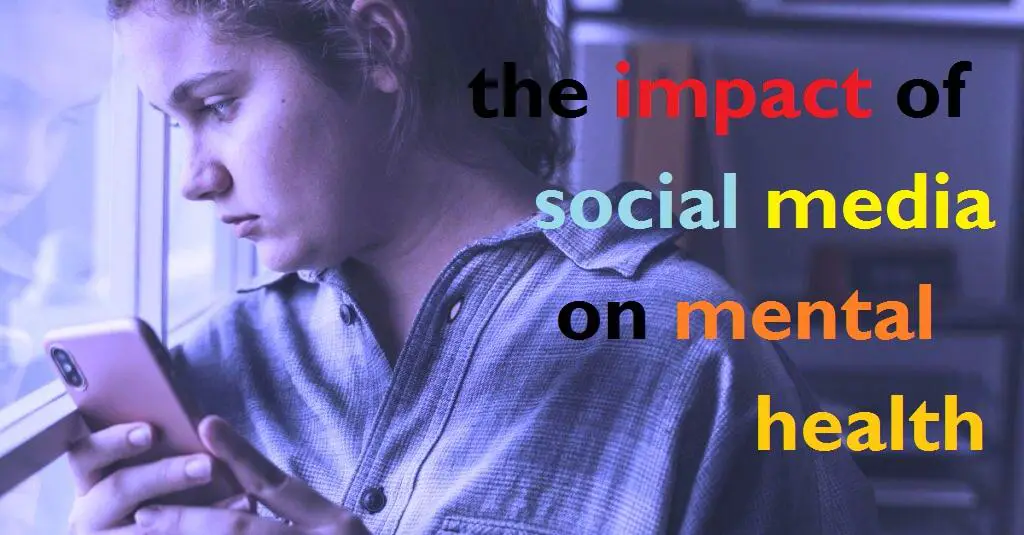
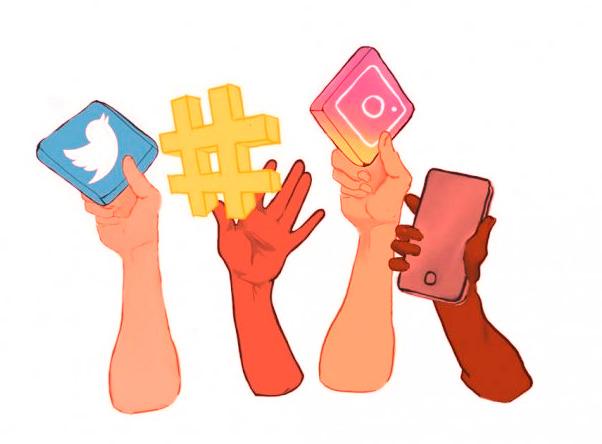
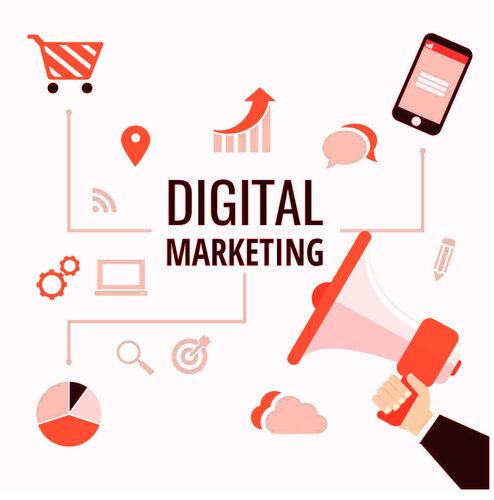

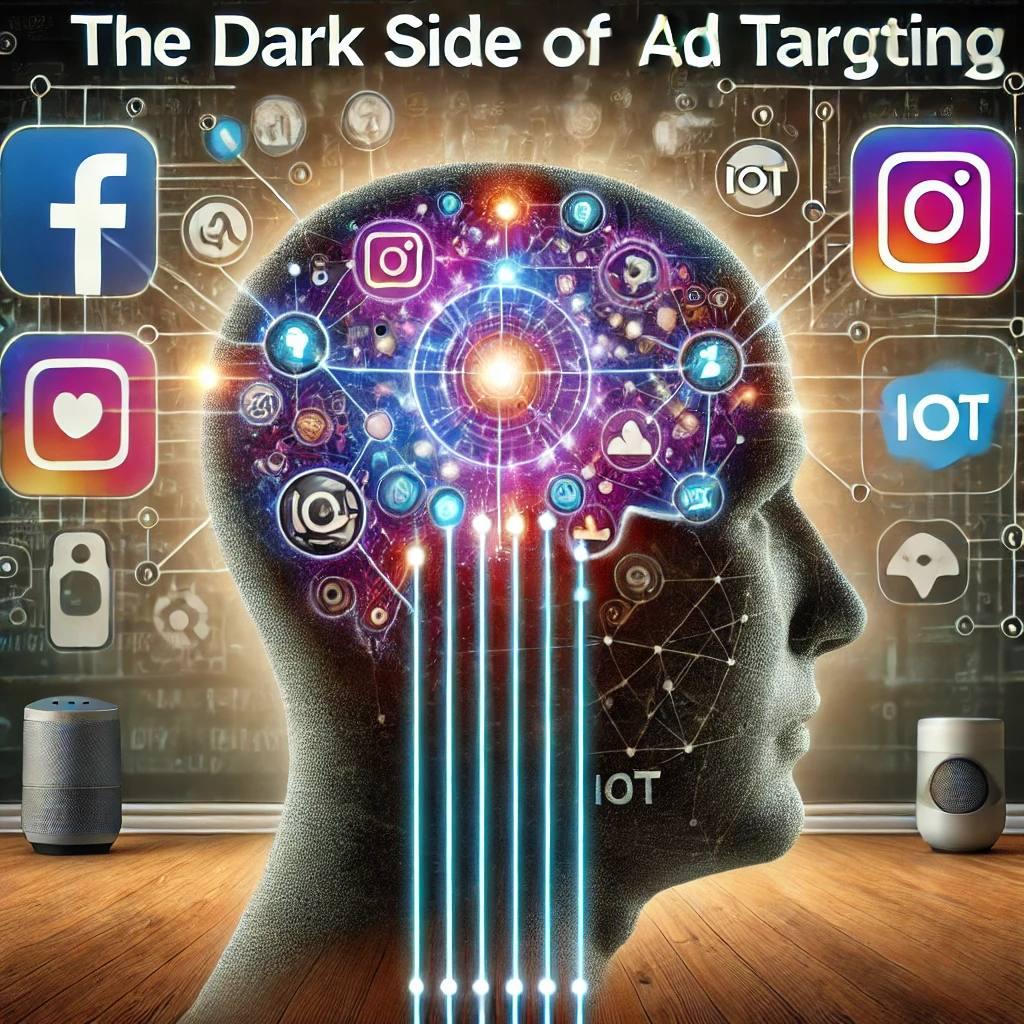







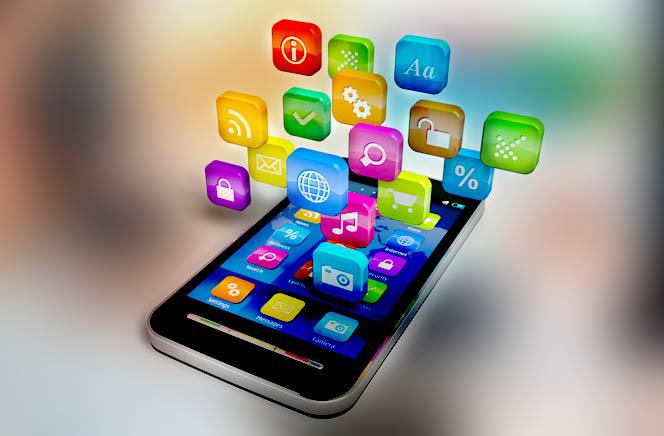



0 Comments, latest
No comments.